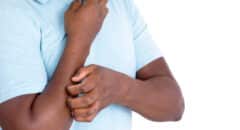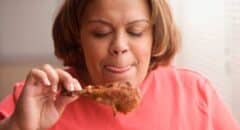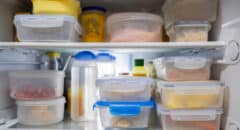
The FDA is investigating reports of five deaths and a nonfatal heart attack in people who drank high-caffeine energy drinks made by the Monster Energy Company.
Meanwhile, a Maryland couple has filed a wrongful death suit against the company, alleging that their product killed their 14-year-old daughter. They say Anais Fournier, 14, collapsed after drinking her second 24-ounce Monster Energy drink in two days. She died six days later.
The reports are not proof that the drinks caused the deaths, but merely signal there might be a problem. Even if the deaths are determined to be caused by caffeine poisoning, the FDA will consider all sources of caffeine before blaming the deaths on the energy drink.
Like what you’re reading? Then LIKE us on Facebook!
In addition to caffeine, energy drinks contain other stimulants, including taurine and guarana, a caffeine-containing plant.
Because energy drinks are sold as nutritional supplements, they are not regulated as foods. This means they may exceed the FDA-mandated limit of 71 milligrams of caffeine for a 12-ounce soda.
“FDA continues to evaluate the emerging science on a variety of ingredients, including caffeine,” FDA spokeswoman Shelly Burgess said in an email.
The reports aren’t the first health warnings about energy drinks. Last year, the U.S. Drug Abuse Warning Network reported a tenfold spike in emergency-room visits involving energy drinks. In some 70% of cases involving teens ages 12 to 17, the energy-drink itself — not drugs or alcohol — was the main reason for going to the ER.
Last year, researchers at the University of Miami reviewed the health effects of energy drinks on children, teens, and young adults.
Writing in the journal Pediatrics, they concluded that “energy drinks have no therapeutic benefit” and that “these drinks may put some children at risk for serious adverse health effects.”
These “health effects” include irregular heart rhythms and, in children who may have hidden heart risks, sudden death.
Monster Energy Sued Over Death of Teen
In their lawsuit, Fournier’s parents report that their daughter bought and drank a 24-ounce can of Monster Energy at a local candy store. The next day, she bought another one and drank it, too.
A few hours later, Anais Fournier’s heart stopped. An ambulance took her to the hospital. She was put into an induced coma in an effort to keep her brain alive. But six days later — on Christmas Eve 2011 — she died.
The lawsuit notes that Monster Energy does not list the amount of caffeine in Monster Energy. It estimates that each of the two cans the girl drank contained 240 mg of caffeine. Recommended teen and child doses of caffeine should not exceed 100 mg per day; adults should have no more than 400 mg per day.
The lawsuit claims Monster Energy is a dangerous product, that its maker failed to warn consumers of any risk, and that the company is negligent in marketing the product to teens and young adults.
In a news release, Monster Beverage Corp. states that it stands by the safety of its products. “Monster is saddened by the untimely passing of Anais Fournier, and its sympathies go out to her family. Monster does not believe that its products are in any way responsible for the death of Ms. Fournier and intends to vigorously defend the lawsuit. … Neither the science nor the facts support the allegations that have been made. Monster reiterates that its products are and have always been safe.”
The American Beverage Association, the trade group that represents the soft drink industry, notes that Monster Energy has never been an ABA member.
However, the group notes that energy drinks’ “ingredients and labeling comply with all U.S. FDA requirements.”
The ABA and its members have developed voluntary guidelines for labeling and marketing energy drinks. The guidelines say ABA members that make energy drinks should:
- Identify on their labels the amount of caffeine from all sources in the beverage.
- Not promote mixing energy drinks with alcohol or claim that energy drinks counteract the effects of alcohol.
- Advise on their labels that energy drinks are not intended or recommended for children, pregnant or nursing women, or others sensitive to the effects of caffeine.
- Not market energy drinks as sports drinks.
- Not market or sell energy drinks in elementary, middle, or high schools.
- Not market energy drinks to children.








